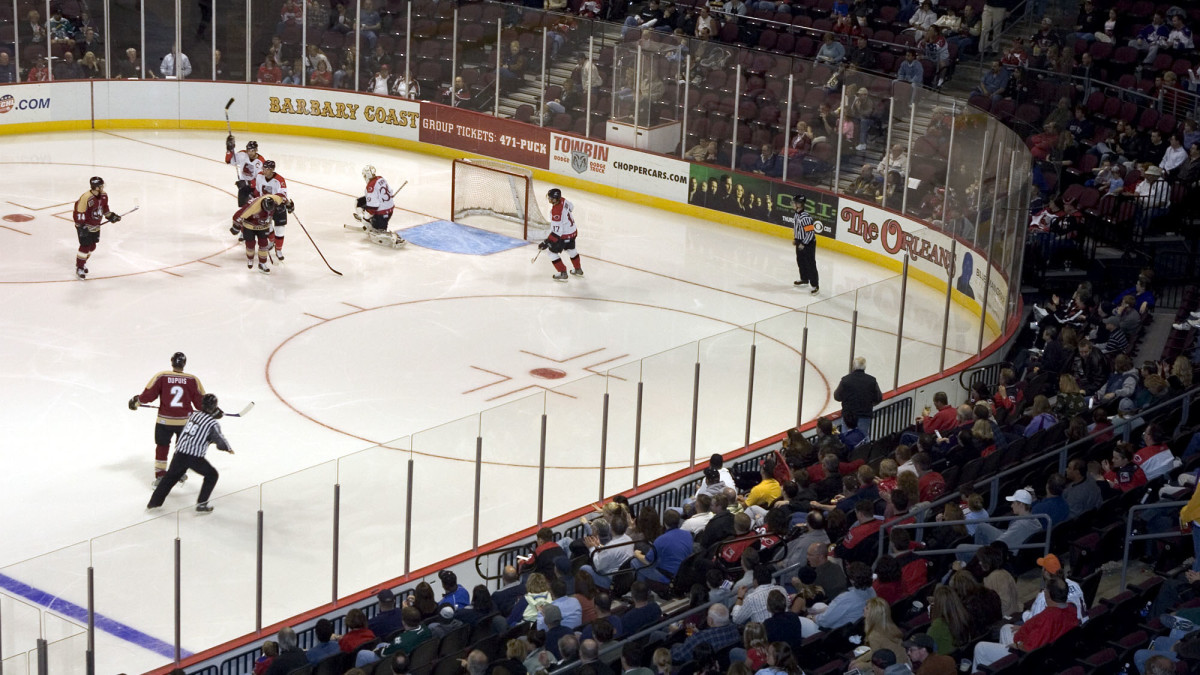AHL Cancels Remainder of Its Season
Read the full transcript here:
Kaitlin O'Toole: The AHL has canceled the rest of its 2019-20 regular season as well as the Calder Cup. Joining me now from The Hockey News is Ken Campbell. Ken, amidst the coronavirus pandemic, the AHL decided to cancel the season. What does this mean, though, for players on their roster, especially those who might have been under consideration for recalls to the NHL?

Ken Campbell: Well, I think it really has a ripple effect on a lot of young players because the AHL is skewed towards a younger demographic in terms of players, and a lot of these players are young players who are learning the game, learning how to be pros. So, to be deprived of the opportunity to play in a Calder Cup championship against men, against pros, that's a huge part of development for a lot of these young players that are going to be playing in the NHL. So they won't be able to have that experience. Beyond that, they'll probably end up being called up anyway, if the NHL does reconvene this summer, and is able to finish its regular season and its Stanley Cup playoffs. Once a team finishes its AHL season, the parent team in the NHL, it can basically call up an unlimited number of players and it's certainly not. It's certainly pretty common to see teams that are deep in the playoffs have 10, 12, 15 extra bodies around that usually end up skating after the main team practices. They're just around to kind of take it all in and see what it's all about. So I don't see that as being any different if the NHL can manage to reconvene this summer.
Kaitlin O'Toole: So let's talk about that, though. How do you think this cancelation will affect the NHL moving forward?
Ken Campbell: I don't think it will, really. The reason why the NHL has chosen to cancel when it has is that it's completely a gate driven league. There's virtually no television money, very little sponsorship money. So if there aren't people in the stands, they just cannot afford to put on the product. I mean, some of the teams probably can because they're owned by NHL teams but a lot of them are owned by private groups and citizens in those cities. And they say they simply can't make a go of that if there aren't people providing revenue and putting people in the stands. So, you know, especially during the playoffs, which typically is the time when these teams make most of their money, they raise ticket prices. You know that they have more people in the building. There's more excitement because there's a championship on the line. So that's basically why they've done this and I don't think it's going to affect the NHL moving forward at all. The NHL is going to go to either play or not play based on whether or not they can logistically pull this off. What I think would be more of a concern is next year, next season, because, if you follow the logic that they can't play in front of empty arenas, what is the American League going to do until such time as there's either a vaccine or people can safely come back to watch hockey. They likely won't play. So, you could have the NHL starting again and then a whole bunch of prospects looking for a place to play because the American League has been playing out. So I would think that the real effect is going to be felt next year, potentially, a lot more than this year.
Kaitlin O'Toole: All right, Ken, great insight, we'll have to see how this pans out. Thank you so much for joining us.
